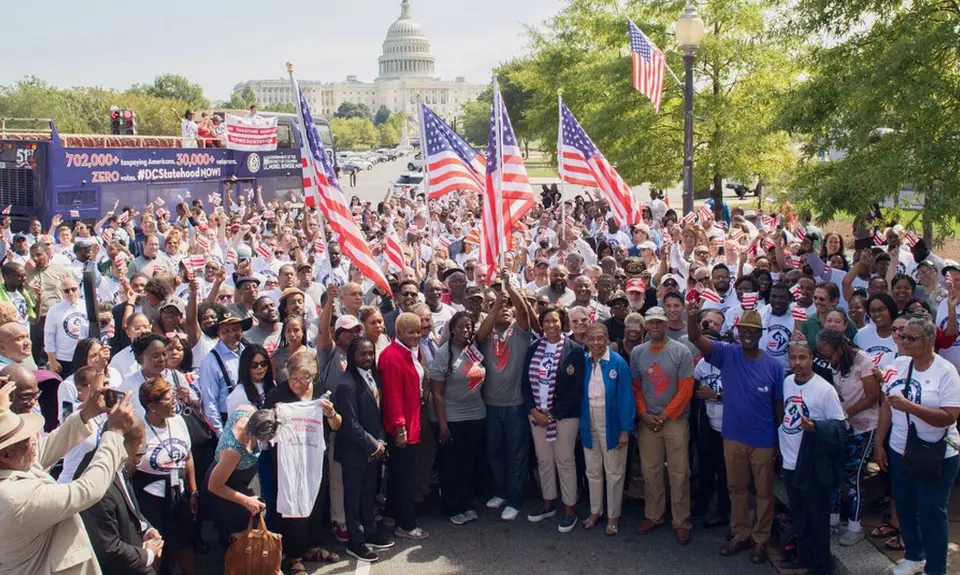On June 26, the U.S. House of Representatives passed H.R. 51, a bill to make the District of Columbia the 51st state. This This landmark victory comes in stark contrast to the rejection of D.C. statehood suffered when it last came up in 1993. Back in the ‘90s, the racism and bigotry that motivated the 277 “no” votes were on full display: Citizens United’s Floyd Brown sent inflammatory mailings that warned, “Do you want a U.S. senator who applauds Castro? … who embraces Arab terrorists? Or Black Muslim hatemongers?”
More recently, Donald Trump has couched anti-statehood arguments in red vs. blue language. “You mean District of Columbia, a state? Why?” he told the New York Post in May. “So we can have two more Democratic — Democrat senators and five more congressmen? No, thank you.” His intransigence was echoed in a nonsensical remark by Senate Majority Leader Mitch McConnell, who said it would be “pure socialism” to grant statehood to the District of Columbia.
You don’t have to look far to see how these attitudes continue to impose deeply racially unjust outcomes on D.C. At the height of the coronavirus pandemic – a crisis with far greater impacts on communities of color -- Senate Republicans failed to treat D.C. as a state in federal relief legislation. That shortchanged the District by $750 million even though its caseload was higher than 19 states’.
For years, D.C. residents’ ability to enact policies that reflect their positions has repeatedly been stymied by members of Congress happy to take advantage of D.C. as their fiefdom, from interfering with D.C.’s response to the AIDS crisis and other important measures, including reproductive freedom and gun violence prevention.
Today, opponents remain dug in. Some claim that recognizing D.C. as a state would require a constitutional amendment. If that were true, then the residents of Arlington County and Alexandria City in Virginia would still be D.C. residents. That part of the original District of Columbia was returned to Virginia by law, partially to protect the thriving slave trade in Alexandria from rising abolitionist sentiment in the nation’s capital.
Furthermore, there is no rational anti-statehood argument based on population size: At more than 700,000, D.C. has more residents than both Wyoming and Vermont, and nearly as many as Alaska. D.C. residents contribute more federal taxes than those of 22 states, and more per capita than any state in the U.S.
The bottom line is that keeping D.C. subjugated serves the interests of entrenched power in ways that hurt not only D.C. residents, but all of us who care about equity and opportunity.
Denying D.C. voting representation at the federal level helps preserve a Republican advantage in Congress that is built largely on an egregious level of gerrymandering. That has a real, practical effect on whether Congress passes legislation that serves the people and advances equity. Today, that means everything from reining in police violence to protecting voting rights.
Oppressing D.C. and denying full citizenship to its largely Black and brown population sends an appalling message to America and the world. No other free country does this. It is an inherent contradiction, like the Founding Fathers’ appealing to liberty and equality while simultaneously enshrining slavery in the U.S. Constitution.
We are in a moment of great passion and will to overturn the racial inequities of past and present. It’s simple: This is a climate in which there is no longer any principled way to be for racial equity without also opposing 700,000 Americans being treated as a colony by their own government.
